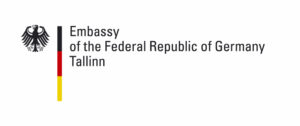International Summer School for Educators – overview
The international summer school on teaching about the crimes of totalitarian regimes for history and civics educators takes place on 23 – 27 July 2018 in Estonia.
The summer school aims to bring together educators (teachers, youth workers) from each EU country to discuss innovative methods for teaching about totalitarian ideologies and the crimes committed by totalitarian regimes.
The 5-day programme will feature excursions to museums and historical sites, a film screening, expert lectures, discussion rounds and workshops. The participants will be introduced to the historical case study and the legacies of the dual occupations of Estonia by Nazi Germany and the Soviet Union. Against this background, the participants will contribute their knowledge on (teaching about) the two totalitarianisms and their crimes in the wider central and eastern European as well as pan-European contexts.
Participation in the summer university is free of charge. The Estonian Institute of Historical Memory will cover all expenses in Estonia (accommodation, catering, transportation in Estonia). Participants will cover their own travel expenses to and from Tallinn themselves.
Introduction to the summer school topics
The Second World War affected the entire world. Its aftereffects affect our daily life to this day, even though we do not always perceive this. Those who were murdered, who died in prison camps, who fell in battle in the war, or civilian victims of the war, will never return. Their grandchildren never found out what their grandfather who died in the war, or their grandmother who starved to death in a concentration camp, could have talked to them about.
Three quarters of a century have passed since the war and the children and young people of free, prosperous and democratic Europe mostly do not know how much more fortunate they are compared to their grandparents and great-grandparents. They do not know what it means to live in constant fear and under conditions of war and military occupation, and of hatred towards some group of society or an entire people. They have no experience of daily life in a totalitarian society, where in addition to compulsion, fear, political pressure, and spiritual and intellectual depression, it was impossible to travel to other countries or to go to live abroad.
This was a society where shops were stocked with only poor quality staple goods and basic foodstuffs, where people had to stand in queues for several hours even just to buy a few rolls of toilet paper if there was any toilet paper available at all. Democratic European states based on the rule of law have left all of these worries in the distant past. Common European values have become so self-evident that their declaration in the speeches of politicians and in the media is only tiresome background noise for many of us.
Many of us no longer realise that general intolerance and hatred, and attacks on freedom, including freedom of movement, but also on freedom of speech, conscience and freedom of opinion, are grist to the mill for those in whose opinion dictatorship and total power in the name of an objective is the most appropriate way to organise the affairs of the world. We no longer know what it means to live without human rights and freedoms, and without European values. We learn and teach history in order to know this, among other things. We must also know how Europe arrived at these freedoms and values less than a century ago in order to avoid repeating the horrors of the past.
One of the tasks of the Estonian Institute of Historical Memory is to provide teachers with in-service training. We will be holding a summer school in the summer of 2018 for history teachers from all European Union member states. The summer school will be held on 23–27 July 2018. The course programme focuses on the history of crimes against humanity and violation of human rights during and after the Second World War. We will use the experience of Estonia as a small country to introduce this history. Estonia was occupied alternately by both the Soviet Union and Germany in 1940–1991. The scars of the wounds from this period of occupation affect the nation and society of Estonia to this day.
ORGANISERS
The summer school is organised by the Estonian Institute of Historical Memory with the support of the Federal Republic of Germany.
REGISTRATION
To register, go to: http://mnemosyne.ee/en/summer-school-2018/
The registration deadline is 15 June. We will inform you of your participation by 20 June at the latest.







